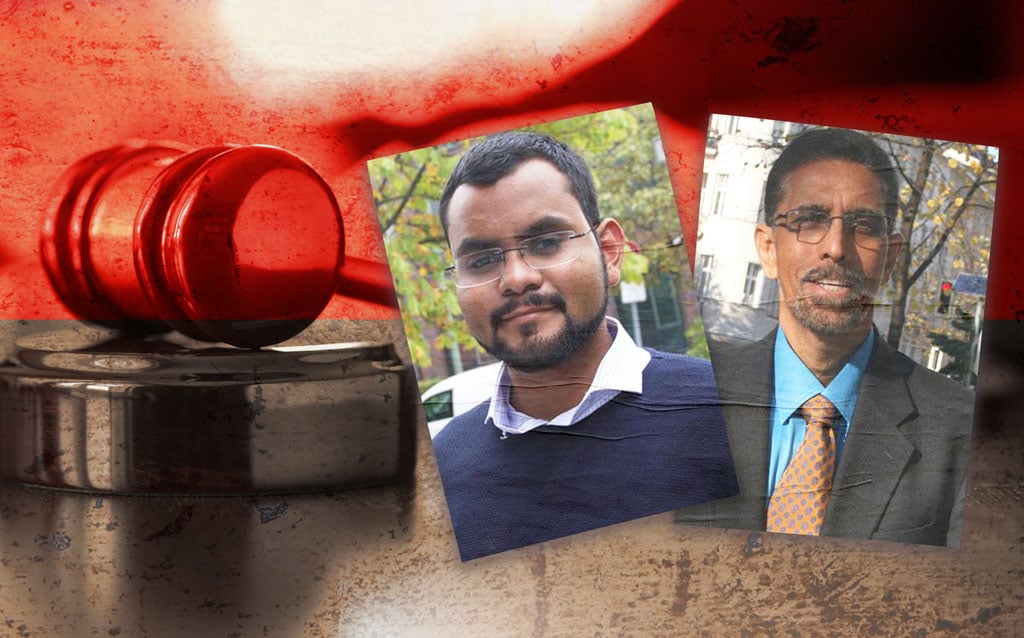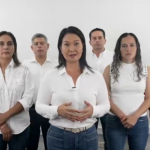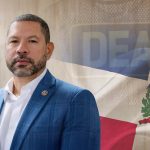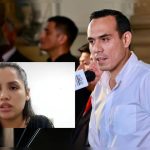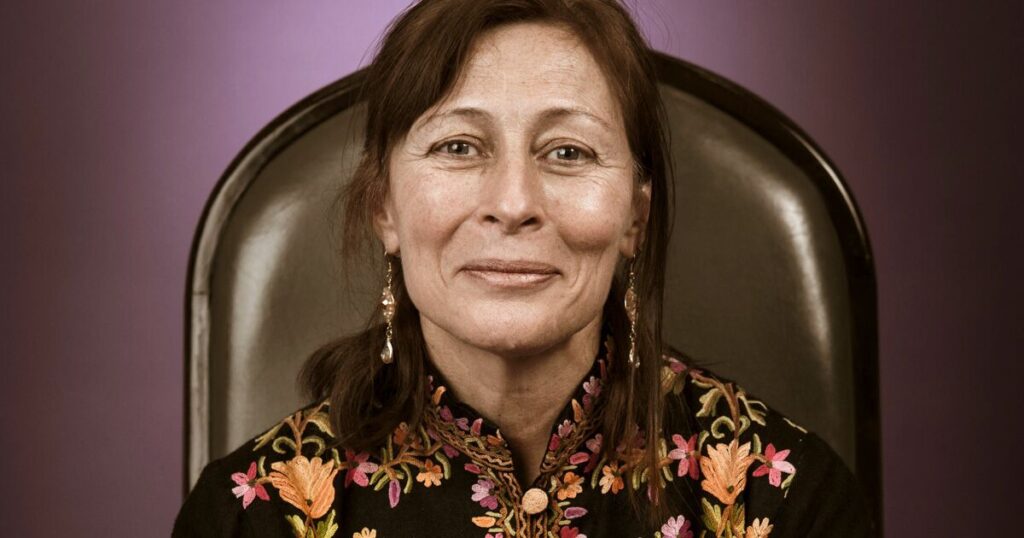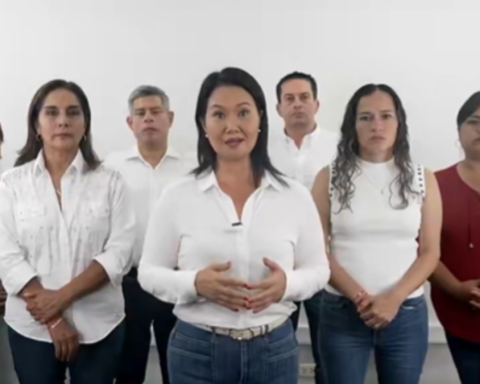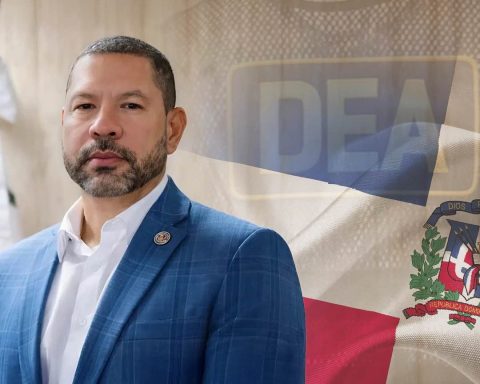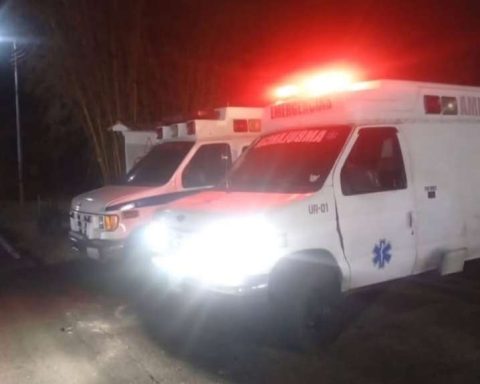Former Vice Chancellor Víctor Hugo Tinoco and student leader Max Jerez were found guilty of the alleged crime of “undermining national integrity”, during the last trial held in the second week of hearings, described as “illegal” by specialists in criminal law and human rights defenders.
The Prosecutor’s Office requested 13 years in prison for both political prisoners and disqualification from holding public office. Tinoco is a founding member of the Unión Democrática Renovadora (Unamos, formerly the Movimiento Renovador Sandinista, MRS), and Jerez is the president of the Alianza Universitaria Nicaragüense (AUN). Both faced a hermetic hearing held in the Directorate of Judicial Assistance, known as the “Chipote”.
The Prosecutor’s Office presented three police officers and members of the DAJ, as witnesses against the former vice chancellor, who basically narrated the investigations they carried out. They added, as evidence, two videos of interviews that Tinoco gave to Channel 10; in one of them he assured that “nobody is waiting for a foreign invasion”, confirmed CONFIDENTIAL.
His wife entered the audience, who was able to talk with him for about ten minutes at noon and say goodbye before the police officers took him to his cell.
The also former guerrilla was kidnapped on the night of June 13, 2021 by a group of civilians. He was put in a truck when he was in the park of a shopping center in Managua and taken to the DAJ, without a court order, his family said shortly after the event.
His daughter, Cristian Tinoco, has demanded his immediate freedom since his imprisonment. The young woman suffers from a type of cancer for which she must be hospitalized, and this disease represents the greatest concern for his father, he portrays a report published by CONFIDENCIAL.
Max Sherry’s Aunt
Jerez was tried by the judicial Nadia Tardencilla in a hearing that he did not know until the moment he was brought to court. The same thing happened with his peer, the student leader, Lesther Alemán, and the former guerrilla, Dora María Téllez, on February 3, when they were also found guilty of the same crime of “undermining national integrity”.
During the trial, according to a statement from AUN, Jerez only managed to say: “history will teach us the place where we should be. With dignity and honor I assume this challenge in prison, because all change has sacrifice”.
Her aunt, Blanca Meza, was present at the trial, which she described as a “circus” because he assured that the judicial processes have been premeditated, with the approval of laws “sinister and nefarious”designed to arrest, accuse, prosecute and condemn everyone.
#Urgent| The Ortega and Murillo dictatorship, through Judge Nadia Tardencillas, found Max Jerez guilty in his judicial farce.#Freedom for political prisoners #FreedomForMaxJerez pic.twitter.com/Nk8pOTO2LE
– AUN (@AUNNicaragua) February 11, 2022
Meza assured that after the sentencing was read, he shouted in the courtroom that his nephew “can be sentenced to a hundred years, but he is innocent, they are all innocent and they are imprisoned here because they were afraid of them. Fear is what they had, that is why they are here, I told them, because of fear, ”she pointed out.
He recalled that prisoners of conscience are imprisoned for “to ask for a country in democracy, for asking for fair and true elections that one day must be”, Held. He managed to talk with Jerez for ten minutes, he saw him calm and on his part, he transmitted strength.
Jerez was captured on July 5, 2021 while in a safe house. The young man lived in prison the pain of not assisting his mother, Heidi Meza, in the last days of his life. His mother died on September 17 from a pleural effusion and pneumonia. The regime did not give him permission to attend the funeral.
Jerez is one of the best students in Nicaragua and was decorated by the National Council of Universities (CNU), by the Polytechnic University of Nicaragua (Upoli), whose legal status was canceled and its facilities confiscated by the regime. Since 2018, he has been involved in the civic struggle and participated in the two attempts at dialogue between the opposition and the Ortega regime.
Against Unamos leaders
The capture of Tinoco was part of a political hunt against the leaders of Unamos, which included the former president of that political party, Ana Margarita Vijil —sentenced to ten years in prison—; the president of Unamos, Suyén Barahona; the founder and ex-guerrilla, Dora María Téllez —sentenced to eight years in prison—; the member of the Blue and White National Unity, Tamara Dávila; and the retired general and guerrilla commander, Hugo Torres.
In addition to the constant interrogations, isolation and incommunicado detention experienced by all political prisoners in “the Chipote”Tinoco, along with prisoners of conscience Irving Larios and Dora María Téllez, have been deprived of the right to their social security pensions.
Tinoco joined the Sandinista Front in 1973. With the Sandinistas in power, he was Nicaraguan ambassador to the United Nations and later vice foreign minister (1981-1990). He was also a member of the National Directorate of the FSLN and a deputy twice, once for the FSLN and once for the MRS.
Trials in “El Chipote” violate the law
The political trials reactivated by orders of Daniel Ortega have been scheduled for the entire month of February against political prisoners, in the same facilities of “El Chipote”, where dozens have been imprisoned since the end of May 2021.
However, carrying out these processes in the prison facilities constitutes one more of the illegalities of due process, according to the specialist in Criminal Law, María Asunción Moreno, in an interview with Tonight.
Lawyers who closely follow the cases against political prisoners agree with Moreno that judges cannot hold hearings outside the Judicial Complex, and that the exceptions established in article 121 of the Criminal Procedure Code only apply to “proceedings” that require the presence of the judge in his territorial jurisdiction.
However, they maintain that the exception does not apply in the case of these political trials, because neither the defense nor the Prosecutor’s Office have requested that they be held in “the new Chipote,” the lawyer said.
The right to defense is violated
Another of the illegalities is that the defenders of political prisoners have not accessed their files – completely or partially – and they have not been able to talk freely with prisoners of conscience.
A lawyer who monitors political trials assured CONFIDENTIAL that in these processes the exercise of technical and material defense is being violated, contrary to article 124 of the Code of Criminal Procedure (CPP), which establishes that “the parties may obtain at their own expense simple copies of the judicial proceedings without any formality” .
Also, he added, article 34 of the Political Constitution of Nicaragua is violated, which in its numeral 4, demands that “their intervention and due defense be guaranteed from the beginning of the process or procedure and to have adequate time and means for their defense ” .
In addition, this January 31, the Public Ministry violated the presumption of innocence of political prisoners, by calling them “criminals and delinquents” in a statement announcing the resumption of trials.
“These same criminals and delinquents have reoffended, attacking the rights of the Nicaraguan people and society, compromising peace and security. They are the same ones that promoted and directed the terrorist acts of the failed coup attempt of 2018, having paralyzed the country and created damage to the economy; They are the same ones that have caused so much pain and mourning in the Nicaraguan family because of the murders, torture and kidnappings,” he published.
Likewise, Ortega already condemned the political prisoners on November 8, in his most virulent speech against political prisoners, in which he called them “sons of bitches of imperialism.”
They demand the release of political prisoners
The Ortega regime keeps more than 170 Nicaraguans imprisoned, and more than 30 of them remain in “the new Chipote”, under isolation, in punishment cells, suffering physical and psychological torture, according to their relatives, who have only managed to visit them on five occasions during the more than six months of confinement.
Relatives of more than 30 political prisoners They demanded, at the end of January, the annulment of the trials and the unconditional release of all prisoners of conscience. In this way, they joined a previous statement, in which another group of relatives appealed for the support of “rulers, living forces of the nation and (Catholic) Church” so that they “lead” a “citizen unification process”, emphasizing that the release of prisoners of conscience would serve “as a kind of liberation shared by all Nicaraguans.”
After the communiqués, the Superior Council of Private Enterprise (Cosep), which had been silent since September 2021, supported the demand for the freedom of prisoners of conscience, and announced its willingness in favor of a national dialogue “without preconditions”, in in the midst of the worst legitimacy crisis of the Ortega regime, which previously announced meetings with different economic sectors, without mentioning COSEP.
Among the 39 political prisoners captured between May 28 and October 21 (including four under house arrest), 29 are accused of alleged conspiracy to undermine; another seven are accused of money laundering and other crimes; two are investigated for violations of the “Law of Sovereignty” and one for abusive management and improper appropriation and retention.
The regime has used against the opposition the package of repressive laws that they approved between October 2020 and February 2021, being the most used until now, Law 1055 or Law for the Defense of the Rights of the People to Independence, Sovereignty and Self-determination for Peace, better known as the “Sovereignty Law”, which facilitated the imprisonment of seven presidential candidates, as well as political, civic, student, peasant, former diplomat, journalist, activist, professional and human rights defender leaders.
He has also used the Special Cybercrime Law, known as the “Gag Law”approved on October 27, 2020, which penalizes whoever -according to the regime’s criteria- spreads “false news”.
Thus, the Prosecutor’s Office sentenced in January Donald Margarito Alvarenga Y Douglas Cerros Lanzas. Alvarenga was convicted of allegedly inciting “hate and violence” through Facebook posts and WhatsApp messages and for “subversion, disobedience and rebellion at the level of conspiracy to affect national integrity”; and Cerros for allegedly undermining national integrity and spreading false news.
